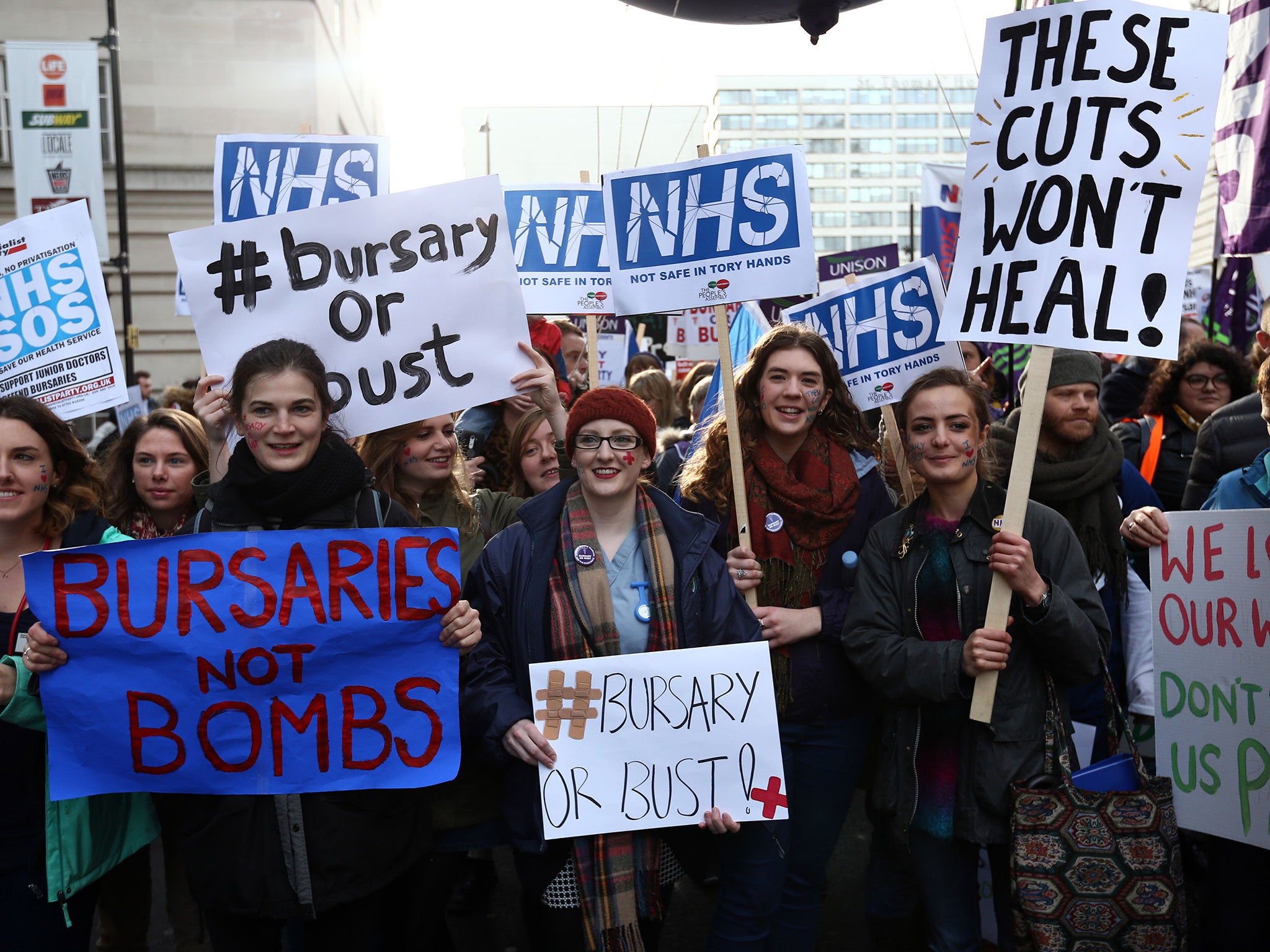NHS nurse shortage caused by ministers' 'desire to save money', report says
Migration Advisory Committee also says NHS treated migrant nurses as a 'Get Out Of Jail, Free' card

The NHS has a shortage of nurses because of ministers’ “desire to save money”, a damning report by official Government advisors has found.
The independent Migration Advisory Committee said that the Department of Health (DH) and the NHS failed to create enough nurse training places and treated migrant nurses as a “Get Out Of Jail, Free” card.
Recommending, “with considerable reluctance” that nursing should remain on the shortage occupation list - making it easier for hospitals to recruit from abroad – the MAC said there was “no good reason why the supply of nurses cannot be sourced domestically.”
“It seems to us that the shortage is mostly down to factors that could, and should, have been anticipated by DH and related bodies,” their report said.
The report estimated that 9.4 per cent of nursing places in England were currently vacant and said that 17 per cent cuts to nurse training places under the Coalition government was a “significant contributing factor” to the current shortage.
Cuts have continued, the report said, with NHS training body Health Education England saying that it wanted to commission 3,000 nurse training places in 2016/17. But as a result of “funding constraints” it only commissioned 331 – one tenth of what was needed.
The report also said that holding down nurses’ pay may have been a factor in driving trained staff to leave the NHS to work for agencies. Nurses were told earlier this month their pay increases would continue to be capped at one per cent a year.
“It is clear to us that the current shortage of nurses is largely of the health, care and independent sectors’ own making,” the report concluded. “They did not learn the lessons from the late 1990s/early 2000s when a similar shortage (and reliance on foreign nurses) occurred. Almost all of these issues relate to, and are caused by, a desire to save money. But this is a choice, not a fixed fact. The Government could invest more resource if it wanted to.”
The committee recommended an annual cap of between 3,000 to 5,000 non-EEA nurses to be recruited into the NHS over the next four years.
A Department of Health spokesperson said it was “delivering on our plan to train more home-grown nurses”.
In an interview with the British Medical Journal, Health Secretary Jeremy Hunt said that workforce planning had not been a “strong point” for the NHS “for very many decades”
“We’re reforming the funding of nurse training in order to make sure we can afford to train more nurses,” he said.
He also told the BMJ that he believed it was “inarguable” that UK health spending as a proportion of national income would have to rise in the coming years to cope with growing demand from an ageing population.
Join our commenting forum
Join thought-provoking conversations, follow other Independent readers and see their replies
Comments